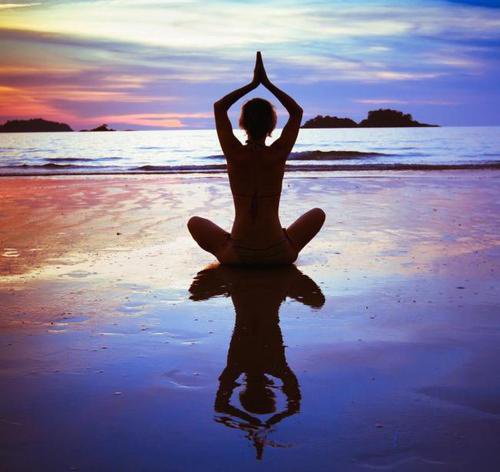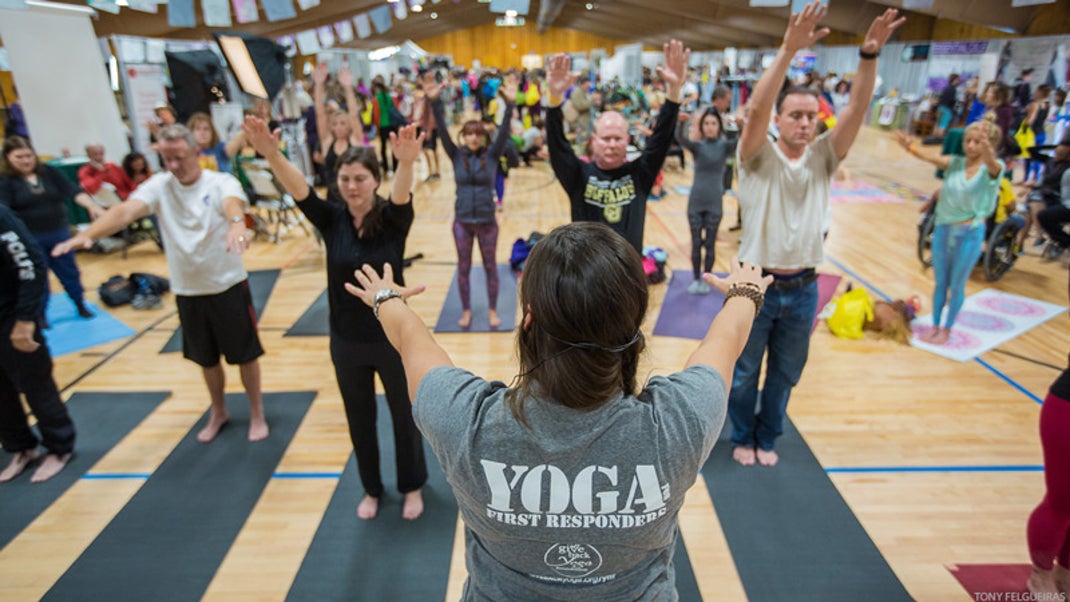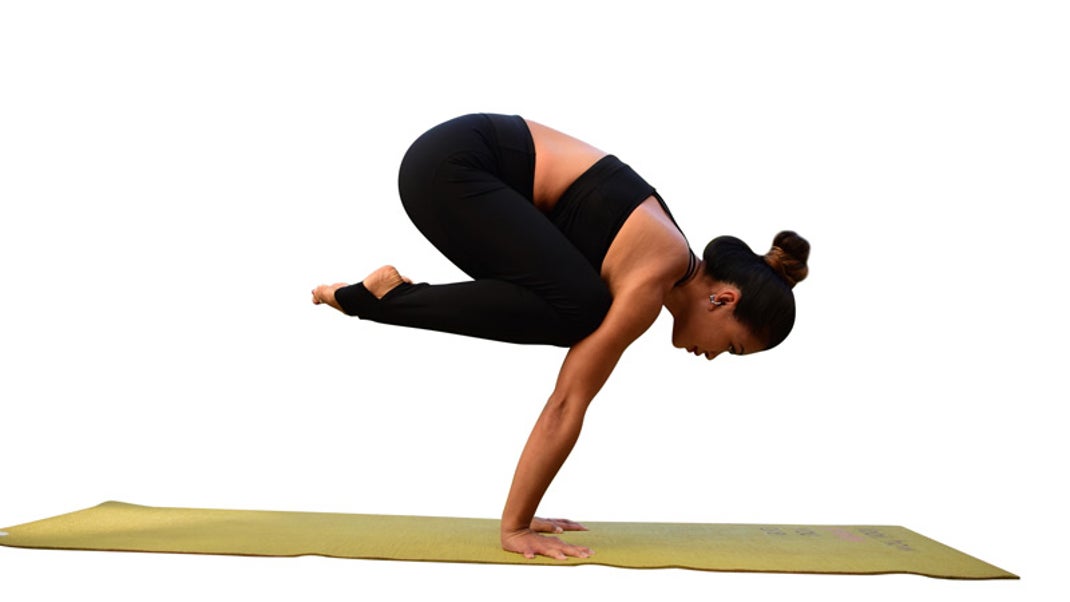We all know that yoga is a great way to relieve stress and promote wellness, but when do we need to practice? The best time of day for practicing yoga can vary depending on your personal preference.
Some people prefer the morning while others find it easier to do in the evening. In this article, I will discuss some pros and cons of each time of day so you can decide which would be best for you.
If you are planning to join a yoga teacher training and intend to make yoga an integral part of your daily regimen, you might well be wondering about the optimal time of day for yoga practice. The good thing is that there is never a bad time to practice yoga! What’s more important is that you practice yoga regularly — as both morning and evening practices offer a lot of benefits.
Whether you do it right after you wake up or before going to bed, the time of your yoga practice is entirely up to you. Just keep in mind that you don’t want to stimulate your body before retiring to bed, so a certain understanding on which asanas to choose at what time of the day is essential. Choosing the time of day to practice can depend on many different factors. The yoga practice sessions can be planned in line with your personal schedule and your body’s rhythms.
Yoga is a spiritual as well as a physical regimen that can be beneficial at any time of the day. The morning person would appreciate the stimulating effect of several asanas to kick off the day, while slow risers would equally benefit from a gentle morning practice that gradually wakes up body and mind.
Most people find a practice session in the morning to be energizing and refreshing —the ideal way to start a day. Others practice yoga to unwind after a hectic day has taken its toll on the body and mind.
Value of Morning Practice
It goes without saying that you’re more likely to get a yoga session done if you schedule it in the morning. Even if you aren’t the morning type, the morning might be the best time for you to practice The later you schedule it, the more conflict with other activities will arise, and the greater the chance of the practice getting sidelined.
The same holds true if you are often committed to evening duties and find yourself exhausted at the end of the day. It’s definitely best to make sure you practice in the morning, and if you can manage to include a session in the evening too, that’s a bonus. If you want to make steady progress in your asana practice, a twice-daily practice routine is a must. You will notice a marked improvement in your flexibility and your body’s responsiveness.
The morning is generally the coolest part of the day, making it a good time to energize yourself. If you start your practice in the early morning before 6.00 am you will be surprised how pliable and flexible your body is. The longer you sleep in the morning the stiffer the body gets. Until the evening when it softens again. Doing asanas first thing in the morning, after your meditation, is a way to de-clutter your mind and ready your body for the day. You’ll also benefit from exercising on an empty stomach, with all those twists and spine-bending postures becoming that much easier.
An ideal morning yoga session comprises gentle warm-ups and stretches at the beginning. Energizing poses such as the sun salutation should feature prominently in a morning session. This is highly beneficial in warming and waking you up as well as connecting you with your breathing. After a few standing and balancing poses, you can progress onto some gentle inversions and heart openers. Such a coordinated session can leave you feeling awake and energized – so you can skip that morning cup of coffee!
A few days of early morning practice will soon find you waking up before the alarm, happy to face each day as it comes.
Benefits of an Evening Practice
If your mornings are rushed with you barely making it out the door on time, commitment to a morning practice can be clearly unrealistic. Or with all the time in the world, if you still need an hour or two to get going in the morning, morning practice may not be the thing for you.
Some of us may find more time in the evening, with no rush to complete the practice. An evening yoga practice is best to also help you wind down after a busy day, especially with a calming practice that involves some twists, but mainly forward folds, such as seated forward bend and inversions.
The perfect evening session should soothe and relax you. Keep in mind that if you’re practicing late in the evening, you’ll want to avoid energizing backbends and big heart openers, such as the bow. What’s recommended are soothing surrender postures and inversions, such as shoulder stand and plow that can induce relaxation in the evening.
Practicing suitable yoga poses in the evening can help ease the stress of the day and fight insomnia. It can even turn into a bedtime routine that can get your mind and body refreshed, helping you fall asleep faster. Wrapping up your yoga practice with meditation can further prepare your mind and body for deep sleep.
A regular evening practice can also help with unhealthy practices that you’re trying to avoid – such as snacking or watching television. It’s definitely a better idea to practice yoga instead.
It’s Your Choice
Your personal rhythm, your surrounding environment, the changing seasons, the heat, and the cold are all aspects to account for when determining the timing of your yoga practice. Let your energy levels guide and help you identify the right time of day to practice. Just make sure you practice on an empty stomach
The perfect way to determine it is, to be honest with yourself and experiment. You may discover benefits in both and that on certain days certain time slots work better than others.
The best approach however according to the approach of traditional yoga is a twice-daily practice, both in the morning and evening, to prepare the body/mind for the day’s adventure in the morning and to reset it for a good night’s rest in the evening. Furthermore, a twice-daily practice prevents the decline of the energy levels within the chakras, making it a valuable practice for meditators who require to maintain optimally balanced energy in the chakras, resulting in emotional balance, which is required for steady spiritual progress.
Final Thoughts: Making yoga a part of your lifestyle
Remember that consistency is key in any practice. The more regular your yoga practice, the more you will notice its effect on your body, mind, and life. Disciplined yoga practice can help you discover yourself and by joining a yoga teacher training class, you can deepen your spiritual connection with the world and others around you.
Conclusion:
When choosing the best time to practice yoga, remember that consistency is key in any practice. The more regular your yoga practice, the more you will notice its effect on your body, mind, and life.





